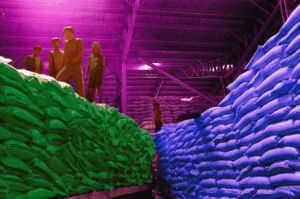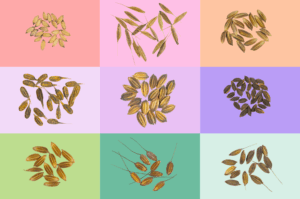Researchers at the University of California, Davis used CRISPR to engineer rice capable of biological nitrogen fixation.
The findings may help reduce the level of nitrogen fertilizers needed to grow cereal crops as well as nitrogen pollution.
Researchers hope the new rice could provide a sustainable alternative to agricultural practice that uses excessive nitrogen fertilizers.
Read the story @GEN
More on smarter fertilizer use in rice production:
Co-benefits of nutrient management tailored to smallholder agriculture
While inorganic fertilizers combined with high-yielding varieties, mechanization, irrigation, and other inputs have contributed to sustained increases in crop yield and food security in the 20th century, relying on blanket applications of fertilizer is inefficient and can cause excessive nutrient losses to the environment. A new paradigm for plant nutrition needs to result in robust co-benefits for these seemingly contradicting goals, and it also needs to improve the nutritional quality of agricultural products.
Improving nitrogen-use efficiency: A key for sustainable rice production systems
The orientation of producing more food, associated with fertilizer overuse, particularly nitrogen (N), has caused a deterioration in soil’s physical, chemical, and microbiological properties and functions and increased soil and water pollution. With increasing pressure to meet global food demand while fostering environmental sustainability, a paradigm shift is needed to a more judicious use of N fertilizer.
Smart fertilizer management and the quest for sustainable rice production
Specific fertilizer recommendations in smallholder rice farming systems could increase crop production while reducing pollution and greenhouse gas emissions.










